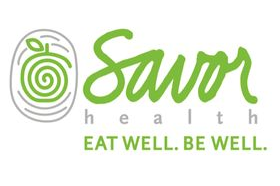Many cancer patients experience weight loss during cancer treatment. It can be a result of the cancer itself or nutrition related side effects that affect your food intake, such as nausea, taste changes, and decreased appetite. Weight loss during treatment is linked to more hospitalizations, delays in treatment, and malnutrition. A common concern for caregivers and patients alike is how to promote weight gain in a healthy way. During and after cancer treatment, it is important to provide your body with adequate nutrients like protein, vitamins, and minerals. In this article, we will provide tips to promote weight gain while eating a healthy balanced diet.
- Eat often. The goal to promote weight gain and combat a poor appetite is to eat regularly throughout the day. You may be used to eating only 2-3 times per day, but while you are actively fighting cancer, it is recommended to eat at least 5-6 times daily. Eating often can stimulate your appetite and provide additional calories to encourage weight gain. If you are not hungry, it is hard to remember to eat. Try setting an alarm on your watch or phone to remind you to eat a meal or snack.
- Choose high calorie, yet healthy foods. Avocado, olives, peanut butter, and nuts are great examples of foods that are good for you, but also high in calories. Adding these foods into your daily meal or snack routine can provide you with adequate nutrients and calories. Additional examples include: seeds, like sunflower or pumpkin seeds, full fat Greek yogurt, cottage cheese, and trail mix.
- Add calorie boosters onto the foods you are already eating. Sometimes during cancer treatment, certain foods will work for you while others won’t. It is important to eat the foods that you are tolerating and find appetizing, but you may need to “doctor” them up to provide additional calories. Adding condiments such as olive oil, cheese, salad dressings, and sauces onto your foods can give you the taste of eating your comfort foods, but with added calories to promote weight gain.
- Drink your calories. 100% fruit juice and milk or milk alternatives can provide hydration, while also providing extra calories. When you are not feeling like eating or having nausea, liquids are usually easier to consume than solid foods. Smoothies and nutritional drinks are good options for high calorie snacks in between meals. If you are experiencing diarrhea, gas, or bloating from your cancer treatment talk to your dietitian about the best kinds for you.
- Stay on a schedule and plan ahead. During your cancer treatments it is important to start an eating and drinking schedule and stick with it. Drinking your fluids in between meals can prevent filling up on fluid during meal time. Planning your meals out the day before can not only increase how much you eat, but also help promote weight gain and improve your nutritional status. Utilize friends and family to help you plan ahead and stay on track.
- Don’t be afraid to indulge. Sweets and desserts are high in calories, which can promote weight gain. While they do not have much nutritional value, it is okay to consume every now and then to satisfy your sweet tooth and increase your calorie intake. Using natural sugars, like honey, pure maple syrup, dried fruit, nuts and whole grains in your favorite dessert recipes are great ways to boost their nutritional content.
- Work with your Dietitian. Meeting with a dietitian regularly during treatment has been shown to produce better outcomes compared to those who do not see a dietitian. Dietitians can give you individualized ideas on ways to add calories, as well as help you with your side effects. As mentioned above, side effects from treatment can have a significant impact on your nutritional status. Managing these side effects with the help of your oncology dietitian and medical team can help you improve your appetite and promote weight gain.
Weight loss does not have to be an uncontrollable outcome of cancer treatment. Using these tips above and focusing on your nutrition related side effects can be the difference between weight loss and weight gain. It is important to not get discouraged if you see the number going down on the scale. Having a positive attitude and being proactive about your nutrition can make a big difference. Create a nutrition plan with the help of your oncology dietitian and medical team and don’t be afraid to ask for help when you need it!
~~~
Looking for instant and personalized nutrition advice? Check out Ina®, Your Personal Intelligent Nutrition Assistant. You can communicate with Ina® 24/7 to receive clinically appropriate and “on demand” nutrition support and guidance. She’ll respond with personalized nutrition tips, recipe, and answers to your questions—no phone calls or appointments necessary.
Visit LUNGevity’s website to learn more about Ina®. Click here to sign-up for Ina®.
 Savor Health is a provider of personalized nutrition solutions designed exclusively for cancer patients based on evidence-based science and clinical best practices and provided by a team of oncology-credentialed registered dietitians.
Savor Health is a provider of personalized nutrition solutions designed exclusively for cancer patients based on evidence-based science and clinical best practices and provided by a team of oncology-credentialed registered dietitians.
Submit your questions here and the experts at Savor Health may answer it in an upcoming blog!
